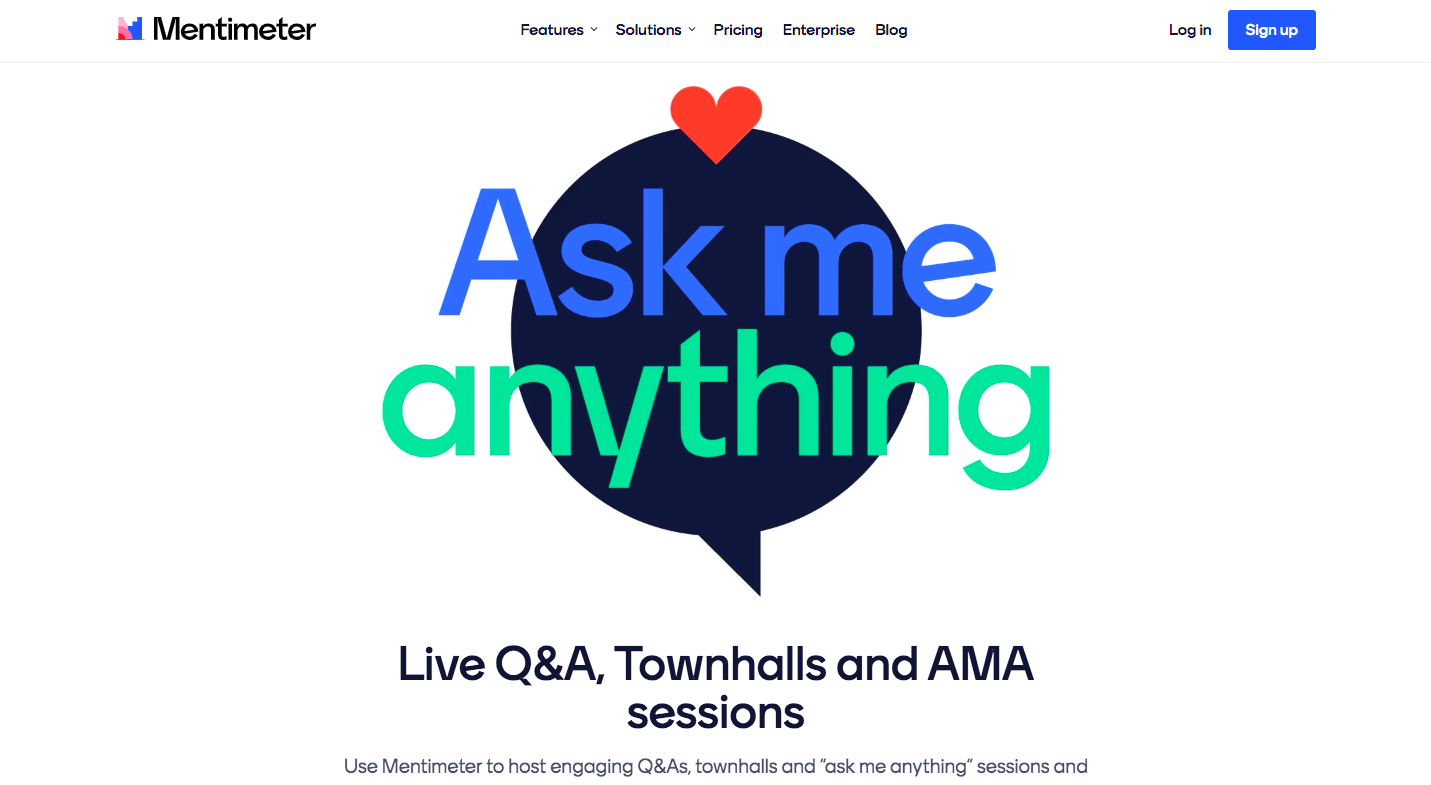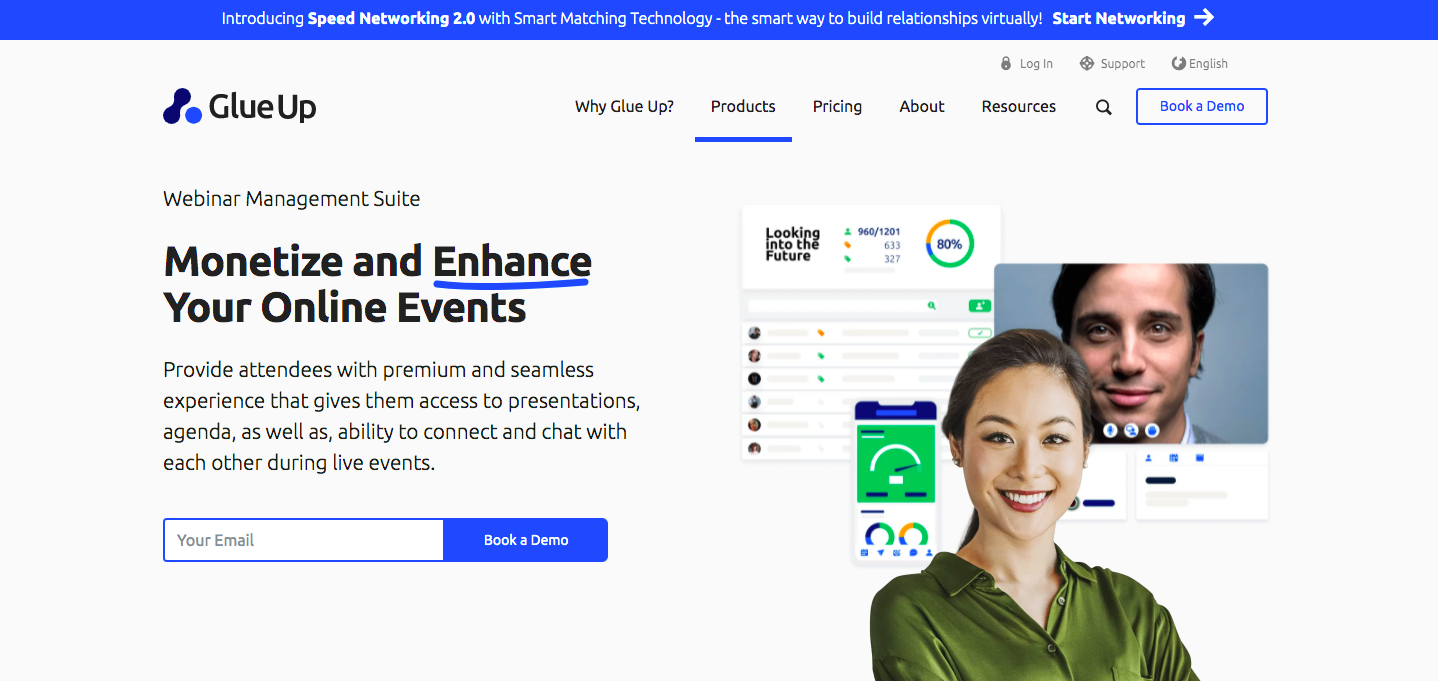![A Complete Guide to Panel Discussion: What Is It & How to Moderate It? [With Examples, Formats & Technology] A Complete Guide to Panel Discussion: What Is It & How to Moderate It? [With Examples, Formats & Technology]](/sites/default/files/image_1803.png)
A panel discussion is one of the most popular approaches to discussing trending topics in front of an audience. It fosters productive learning relationships among panelists and participants. In addition, it allows everyone to reflect and think critically when listening to different perspectives.
Similarly, as a moderator in a panel event, you must lead gracefully and win over the audience. By doing this, you can clearly communicate the event agenda and goals that can make virtual discussions engaging and effective.
So if you are hosting one anytime soon, look no further. This article will discuss its definition, different formats, the right ways to host and moderate it, and the best technology platform to use. Let’s get started.
Quick Reads
- Definition of Panel Discussion
- How to Host a Successful Panel Discussion
- Most Commonly Used Panel Discussion Formats to Build Up Creativity
- Example of Panel Moderation Formats
- Best Technology to Use for Virtual Panel Discussions
Definition of Panel Discussion
A panel session is a specific format that involves a group of people who exchange insights and views in a meeting or conference. These experts typically discuss a topic in person or online.
Business conferences or academic conferences that hold panel discussions answer prepared statements from the organizer or respond to questions from the audience in real time. Since most of the interactions are on the spot, they are more challenging than presentations.
Its primary purpose is to create a meaningful environment wherein panelists can share their knowledge and insights that are valuable for the audience. You can consider it an up-close and personal discussion among them.
What Is a Panel Discussion?
A panel moderator facilitates a panel discussion by talking about a specific topic to the panelists and audience. Panelists usually comprise 4-5 industry experts who can share trends, insights, and ideas that can answer questions from the audience. A panel talk's ideal length is 45 minutes to one hour.
You can host it in front of a live audience or record it so that you can play it back remotely. The moderator and panelists may be geographically spread out from the audience that shares a physical room.
What’s Not a Panel Discussion?
A traditional one-on-one interview with a panelist. A moderator shouldn’t just ask questions to each panelist but add meaning to the discussion. You must boost engagement among panelists and invite them for an up-close interview to gain more insights.
Answering questions live from the audience. When you focus solely on answering questions from the audience, it can stop you from gaining a new perspective from other attendees.
A continuous set of presentations. Its format should include a brief introduction about the topic and then a discussion among the panelists and audience. The agenda shouldn’t only present information all throughout but also have parts to introduce and engage every attendee.
How to Host a Successful Panel Discussion
1. Choose an Interesting Topic
Pick a panel topic that creates a buzz in the industry from which panelists can easily contribute their knowledge. Read the news and see if anything sparks an interest. Make a list of options and begin the selection process by elimination.
2. Know Your Purpose
Assess the value you seek to create or your main motivation for achieving goals in a panel discussion.
Your purpose may be getting different opinions and perspectives about your products or services. It may also be about giving knowledge or updates on the latest industry trends. It can be another way to engage customers or add more personality to a brand while showcasing it to the world.
After knowing your purpose, set the format and preferred tone. It can be laid-back, casual, or a formal debate.
Next, get to know your audience, their preferences, and the topic that may interest them. Check the assumptions or biases they may have and the challenges they face that need to be solved.
Lastly, tailor the content of the panel discussion to the audience and make sure that it suits their needs.
3. Prepare a List of Questions Ahead of Time
List down all questions in advance and discuss them with panelists. Panel members would want to feel confident discussing about a particular topic.
Therefore, assign two or three questions per panel member, and be sure to send them before the set date. It will help them answer questions naturally or prepare by listing down their points before the conference.
4. Choose the Right Panelists

Get more information about the panel topic and determine the speakers who are knowledgeable about it and can offer unique perspectives. It will be interesting to invite speakers with different experiences to create an engaging and meaningful discussion.
Research about the panelists to ensure that they are experts who can contribute something valuable from their vast array of experiences or knowledge. Go back to their past speaking engagements to observe how they respond to questions and if they can effectively impact the audience.
5. Give Time for Panelists to Prepare
For a panel discussion to be successful, it needs to have ample time for preparation.
Other than listing down all the questions you will be asking ahead of time, tell them about what they should anticipate from the audience:
- What are their expectations from the discussion?
- What are their most significant pain points and challenges that need to be addressed?
- What actionable insights can you offer?
To collect information before the panel event, you can use a tool that can help you analyze data and insights from the audience. When panelists know all these, they can find the right data, cases, or statistics to support their answers.
A survey software can help you create surveys, quizzes, and polls for the audience to analyze their preferences and feedback.
6. A Strong Moderator Should Lead

A good moderator has the right skills to turn a session into an engaging and fruitful conversation. To keep everyone interested, moderators do the following:
- Be a great Q&A facilitator for a smooth flow of conversation and ideas.
- Avoid jargon and complicated terminologies that the audience may not be familiar with. If needed, they should be able to explain the terms simply.
- Maintain balance in the panelist discussion to avoid someone from dominating.
- Guide panelists in the right direction and maneuver the flow in the right direction if it gets off-topic.
- Manage time well and keep conversations moving forward.
- Highlight key takeaways for the audience to connect well with the conversation.
7. Introduce the Moderator to the Panelists
Host a virtual speed networking event or a casual dinner to introduce your panel participants before the day of the event.
This will create a comfortable environment for everyone to get to know each other's background before engaging in a discussion in front of an audience. An initiative such as this can help the conversation flow naturally on stage.
For reference, remember your conversation dynamics with a total stranger versus someone you have been getting to know more for quite some time.
This introduction can be helpful to the moderator as well. The moderator can better understand the panelists, making the discussion more manageable since there are expectations already.
8. Prepare the Questions and Prompts

Ensure that your moderator works closely with the topic expert on the questions. Open-ended questions are more effective because panelists can elaborate on the details, offer opinions, and express their thoughts.
Also, there should be a specific element in line with the panelist’s background, enabling them to answer from experience and with excitement. Add balance to all questions where everyone can freely participate and add value to the discussion.
9. Keep Your Questions Short and Relevant
The audience is interested in new insights and doesn’t care a lot about personal opinions. As the moderator, exercise power to offer valuable insights wherein the audience can understand a topic accurately and deeply.
Keep in mind that it’s necessary to ask concise and powerful questions relevant to the audience. If you want to make sure which questions to ask, you can crowdsource questions by emailing attendees and inquiring what they want to know.
10. Make the Best Room for Attendees
You can opt for an independent venue that specializes in specific types of events. Check if the cost suits the budget. However, the cost of the venue is just one part of the process.
Here are a few other factors to consider when looking for the right venue:
Atmosphere. Pick a vibe that suits the target audience and theme. Hosting a business conference inside a large gymnasium isn’t ideal.
Location. Choose a secluded location so participants can participate and focus more. If the venue has picturesque surroundings, it can be a good element that may inspire motivation.
Size. A small venue where everybody has to squeeze into a tiny space can disappoint everyone. Similarly, booking a giant venue for a small crowd will ruin your budget and make the event look departed.
11. Practice Good Time Management
As a panel moderator, always be mindful of time. You might give a one-minute welcome and topic overview to the audience, plus 30 seconds to introduce each panelist. That can sum up to 3 minutes. You can then allow 10 minutes for Q&A.
These estimates should be in line with your expectations. Making realistic plans based on your time constraints and your duties as a moderator is critical for a successful panel discussion.
12. Prepare Your “Cutoff Phrases” Ahead of Time
Get ready to cut off long-winded answers that may confuse everyone in the discussion. Therefore, be sure to prepare cutoff phrases in advance.
For example, if someone doesn’t offer a concrete answer to the overall topic, you could interrupt and say, “That’s an interesting point! However, we’d like to know more about ____.”
If you observe someone dominating the discussion, interrupt gracefully and say: “Thank you for that, Anna. It’s now time to hear Christopher’s perspective on this issue.”
We advise you to ask the panel members what “cutoff phrases” they are comfortable responding to. Inform them in advance that this is just a tactic for keeping the discussion focused and on time.
13. Engage the Audience
Create a panel discussion that is audience-focused. Event planners should engage attendees in live polls or Q&A. It’s also essential to remind panelists to give information that is relatable to the audience.
You can start an online poll to set the flow of the discussion. If your panel is about blogging tools, you can run a multiple-choice survey at the start to see how many individuals from the audience currently pay or would pay for good article content. From there, you can ask the panelists for advice on how to boost engagement on a blog.
Live polls can improve audience engagement at your next panel discussion. It’s easy to add more fun to it through gamification.
14. Have Microphones in the Audience for the Question and Answer Session

Do not open the floor right away for questions. State the ground rules first for handling audience questions. As a facilitator, you may mention the following:
- Make it clear that the group's aim is a meaningful exchange of ideas–not to debate or argue.
- Remind everyone to speak with respect by paying attention, truly listening, and not making assumptions right away.
- Ask for the goals they have in mind for engaging in the discussion. Would you like to explore options? Learning more about a topic?
- Mention your responsibilities as a facilitator. Will you only choose to lead the discussion?
Most Commonly Used Panel Discussion Formats to Build Up Creativity
Structured Panel Discussion Formats
These are traditional formats that will serve as the framework of the other formats:
Presentation Style. You get to introduce the main topic and panelists for it. Each panelist can present their ideas and insights on the topic after. This will be followed by an audience Q&A.
Initial Remarks Style. Panelists will introduce themselves and then share their perspectives on a topic. Audience Q&A will follow moderator-curated questions.
Mainstage Style. A short but impactful panel discussion with panel members–the keynoter, main stage presenters, or invited panelists. There will be no audience Q&A.
Q&A Style. There will be an introduction on the panelists and audience, with moderator-curated questions, followed by audience Q&A.
Get Inspiration From a Popular Movie or TV Show
Another great panel discussion format that works is to leverage a popular TV show. It is effective in making even the first few minutes more interesting.
Hot Seat Formats. A set of judges sit together to give their feedback on any content or performance. Some examples are The Voice, X-Factor, and American Idol.
Debate Formats. It is typically a formal discourse on a topic with an exchange of viewpoints. BBC’s “Question Time” is a topical debate wherein guests from politics and the media answer questions from the public.
Game Show Formats. If you want something fun and light, this format is the best way to go. Apply some game show techniques to the structure of the panel. For example, you can use a mobile app to determine who goes next in the game.
Café Style Formats. Café style involves an informal chat between two individuals. Some shows that follow this format are “How I Met Your Mother” and “Friends” which happen in just one place most of the time.
Pitch Panels. This is a bit similar to the hot seat format, but the audience members get to pitch their ideas to panelists.
Talk Show Formats. Another format that’s easy to mimic is the TV talk show with a host and guests discussing various topics. Think about “The Late Late Show With James Corden” and “Jimmy Kimmel Live!”
Popular Movie Formats. If there’s a popular movie creating a buzz, feel free to integrate some of its elements into the panel. For example, you can moderate a panel discussion that will use the “Charlie and the Chocolate Factory” movie theme to inspire creativity.
Event Theme Panel Discussion Formats
Your conference or convention format can get inspiration from an event theme, a panel topic, or an event location.
Location Formats. Panelists in Mexico? It’s easy. Everyone can wear cowboy attire.
Topical Formats. The topic should excite and inspire creativity. In this example, the topic was “being yourself” which led to a format inspired by the song “Born This Way” from Lady Gaga.
Themed Formats. Immerse yourself in the event theme and be more creative. “Programmatic Punch” used the word “Punch” in a boxing format.
Room Set Panel Discussion Formats
The room setup can offer the creative space everyone can enjoy. Here are some examples:
Empty Chair Format. It is ideal when you want to discuss serious topics that can involve the audience as well. You can put an extra chair for your panel to allow an audience member to participate in the conversation.
Musical Chair Format. Begin it by having 3-5 panelists sitting on the three chairs on the stage. Play the music after. The five panelists will start to walk around, and when the music stops, only three can sit down to be part of the next round.
Fishbowl Format. Panelists sit in a circle in the center of the room, and you can find the audience around the stage.
Audience-Driven Panel Discussion Formats
When you have finally engaged the audience, allow them to set the pace of the conversation. We advise that you gather the questions in advance or in real-time during the panel.
Crowdsourced Question Format. Encourage the audience to submit their questions and suggest a mobile app like Mentimeter. With it, you can host engaging Q&As and “ask me anything” sessions to enable the audience to ask questions using their phones.

Capture the Question Format. Gather small groups to discuss what questions they would like to ask. Answer questions from the first table, and allow individuals to pick the next table to ask.
Screened Question Format. Enable the audience to submit their questions via tweets, question cards, or using the meeting app.
Example of a Panel Moderation Format
In panel discussions, two formats come into play: direct, targeted questions to individual panelists and some general questions that seek to get answers from participants.
In the video, it uses the first format when the moderator asks targeted questions to individual panelists about their opinions on students getting too much homework.
Best Technology to Use for Virtual Panel Discussions
While webinar platforms often offer similar features, what can separate them from each other are the capabilities when it comes to automation, lead generation, audio/video quality, and security, among others.
Glue Up
Glue Up’s Webinar Management Software lets you run panel discussions online and offer attendees an enhanced viewing experience.

It allows participants to easily access the panel session and agenda. They can also share digital business cards and engage in a one-on-one chat. What’s more, it lets them speak and share their insights with the panelists during conferences or webinars.
They can also show their screens to others, which allows them to give more depth to the discussion and ideas they want to share clearly and effectively.
Powered by a reliable network, real-time voice and video conferencing are clear, safe, and secure at all times.



